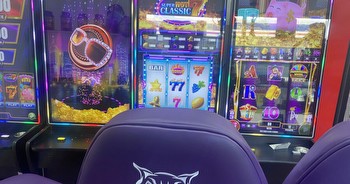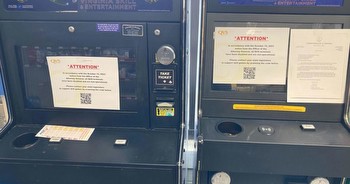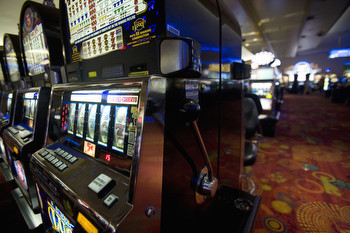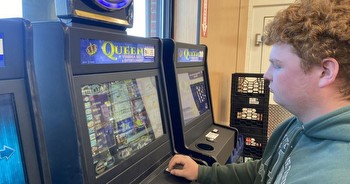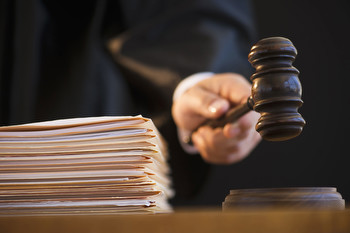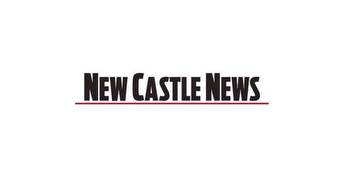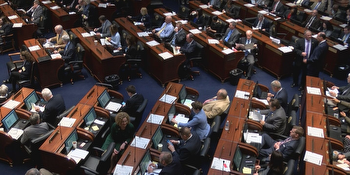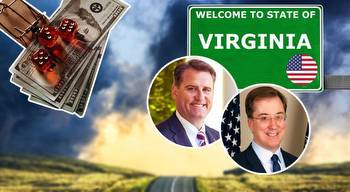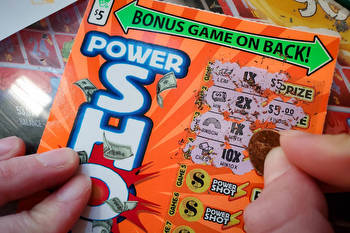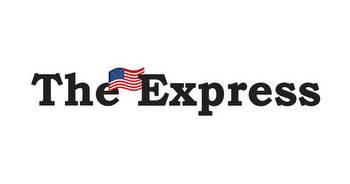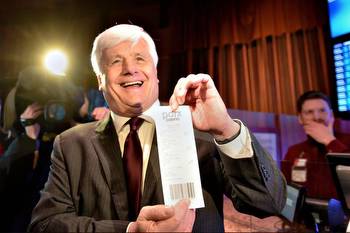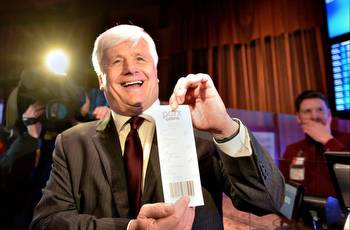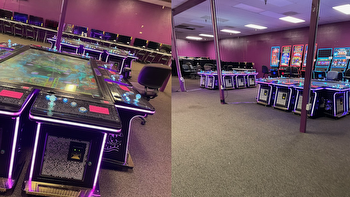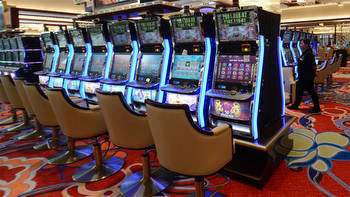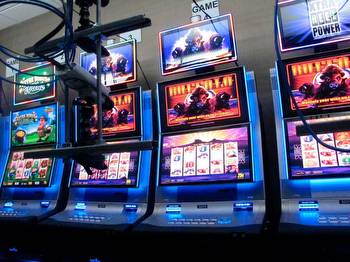Virginia gas station owners want their slot machines back, again.
RICHMOND — The slots-like gaming machines that Virginia has twice banned from gas stations, restaurants and convenience stores would blink back to life under legislation that lobbyists and legislators are pushing through the General Assembly.
The measure could pave the way for slots-style gaming in every corner of the state, which approved the lottery and betting at horse tracks a generation ago but has long shunned other forms of gambling. One of the nation’s last holdouts to casinos, Virginia allowed them just three years ago, lured by promised jobs and tax revenue; it already has three operating casinos, a fourth in the works, a fifth permitted under existing law and a sixth proposed for Fairfax County in a separate bill filed last week. The state also has more than a half-dozen “historical horse racing” (HHR) parlors, which feature a video horse-racing game that, like the “skill” or “gray” machines trying to make a comeback, are often likened to slots.
“It looks like the train has left the station,” Del. Paul E. Krizek (D-Fairfax) said last week after a Senate committee advanced a bill to legalize, regulate and tax “gray” or “skill” machines, so called because they occupied a legal gray area before the state banned them and because operators claim that winnings depend on a player’s skill, not pure chance like conventional slots.
Supporters say the bill, which would have to clear at least one more committee before reaching the Senate floor, represents a lifeline for small businesses and a source of new revenue for the state.
But Krizek and other skeptics, including the state’s casinos and the anti-gambling Family Foundation of Virginia, warn the measure would let tens of thousands of mini-slots parlors pop up in places that are accessible to teens and too scattered for meaningful state oversight.
“We’re backing the little guy,” Sen. Aaron Rouse (D-Virginia Beach), who is carrying his chamber’s version ofthe bill, told the Senate Commerce and Labor Committee last week at a hearing packed with hundreds of convenience store and restaurant owners. “This is a small-business bill that’s looking out for the mom-and-pops.”
Opponents say Rouse’s bill— and its House companion, carried by Del. C.E. “Cliff” Hayes Jr. (D-Chesapeake) — will permitupward of 90,000 skill machines in a state that currently has a combined 6,000 gaming machines in its casinos and HHR parlors. Supporters predict the state will have no more than 20,000 skill machines, at least initially. Virginia had 10,000 skill games in 2020, when then-Gov. Ralph Northam (D) delayed a ban on them for a year during the coronavirus pandemic.
“We don’t need shady slots on every corner!” Virginians Against Neighborhood Slot Machines, a newly formed group that includes Virginia casinos, says on its website. “These games line the pockets of game makers who cater to novice players, including teenagers. When it comes to the safety and well-being of the commonwealth’s communities, Virginians can’t afford to roll the dice.”
There is big money on both sides of the debate, which pits Georgia-based game maker Pace-O-Matic against rival gaming interests, which also include charitable gaming.
Pace-O-Matic has given $1.3 million to Virginia Democrats and Republicans since 2018, including a combined $150,000 to Republican Gov. Glenn Youngkin’s campaign, inaugural and political action committees. Virginia Operators for Skill, an industry group that includes the company, has given the state’s politicians about $790,000 since 2022, including $65,000 just last year to Sen. L. Louise Lucas (D-Portsmouth), chairwoman of the powerful Senate Finance and Appropriations Committee. Lucas also received $20,000 from Pace-O-Matic last year.
The state’s casinos, meanwhile, have collectively given more than $1.4 million to politicians of both parties in recent years.
Dubbed the Virginia Small Business Economic Development Act, Rouse’s bill would allow up to five machines in each convenience store, gas station and restaurant with a license to sell liquor, and up to 10 in each truck stop. Regulation would fall under the Virginia Alcoholic Beverage Control Authority (ABC), which oversaw the machines during Northam’s one-year reprieve.
Opponents say that would permit more than 90,000 machines since the ABC has about 19,000 retail licensees. But Pace-O-Matic’s chief public affairs officer, Michael Barley, says that number is an exaggeration, noting that certain licensees, such as state-run ABC stores, grocers and fine-dining restaurants, would not have the machines. He said he expects 15,000 to 20,000 machines initially.
Whether ABC can regulate even that smaller number is a matter of debate — even among ABC leaders, who are officially neutral on the bill.
John W. Daniel II, ABC’s government affairs officer, was upbeat when asked in the Commerce and Labor committee if the authority could be ready to regulate the machines by July 1, the effective date of the bill, which would direct 6 percent of the tax revenue generated by the machines to ABC for the purpose of regulating them.
“We were able to stand a program up [in 2020] that I think was successful in a four-month period,” he said. “That seemed to work. The lead time here is even — not extravagant — but greater than that.”
But Thomas Kirby, interim CEO of ABC, sounded doubtful when asked the same thing in a House General Laws subcommittee meeting the next day. ABC registered the 10,000 machines and collected $1,200-per-month fees on each one in 2020, he said, but it did not have the capacity to validate the wagers and payouts being reported to them, or ensure that minors were not using the machines.
“‘Regulate’ is a pretty strong word” for ABC’s oversight during that period, Kirby said.
The bill calls for imposing a 15 percent tax on each game’s gross revenue and divvying it up: 6 percent to ABC, 2 percent to a problem gambling fund, 15 percent to localities where the games are situated, 2 percent to the State Police for gaming enforcement, 10 percent to the state’s school construction fund, 10 percent for basic aid to public schools and 55 percent to the state’s general fund.
Pace-O-Matic — the largest maker of the machines — operates in the District and New York, Pennsylvania, Kansas, Wyoming and Texas, marketing the games under different names such as Cowboy Skill in Wyoming and Lone Star Skill in Texas. It’s Queen of Virginia in the commonwealth and District Skill on the other side of the Potomac, where the company also distributes a dragon-themed game similar to a video game.
Several small-business owners told the Commerce and Labor committee that they’ve come to depend on the revenue that the machines have generated for most of the past three years, when Northam’s reprieve and a Circuit Court injunction kept two bans passed by the General Assembly at bay. A ban took effect again in October, after the Supreme Court of Virginia lifted the injunction.
“In this world of shrinking margins, impacted by covid, inflation and global events, the skill games truly were a critical lifeline to these small businesses,” Kunal Kumar of the Virginia Asian American Store Owners Association testified.
Arguing against the plan was W. Scott Johnson, a lobbyist for the casino in Bristol. He noted that the bill would not require local referendums for the machines, something required for casinos and historical horse racing. He also said the bill did not call for the extensive background checks and monitoring required for other gaming, and he questioned ABC’s ability to oversee it all.
Johnson rattled all that off quickly, saying there was no need for a “deep dive” into his objections because the bill was headed to another committee, General Laws, which handles gaming legislation.
But in a surprise move, the Commerce and Labor Committee bypassed General Laws, whose chairman, Sen. Adam P. Ebbin (D-Alexandria) has been publicly skeptical of the machines. The committee sent the bill instead to Finance and Appropriations, chaired by Lucas, a chief co-sponsor of Rouse’s bill.
Commerce and Labor Chairman R. Creigh Deeds (D-Charlottesville) resisted the move, saying, “The rules of the Senate say gaming goes to General Laws. The chair of General Laws has requested the bill and I’m going to follow the protocol.”
But the committee voted 10-5 to send it to Lucas’s committee. Lucas, who also sits on Commerce and Labor, voted in favor of that move. So did Sens. William M. Stanley Jr. (R-Franklin) and Senate Minority Leader Ryan T. McDougle (R-Hanover), who as private attorneys represented truck-stop owner and former NASCAR driver Hermie Sadler in a lawsuit challenging the state’s ban on the machines.
Stanley also has a racecar team and podcast he shares with Sadler, both sponsored by Pace-O-Matic — ties that have raised eyebrows among some of the bill’s opponents.
Stanley noted that he abstained from voting on gray machine matters in previous legislative sessions. After Sadler’s lawsuit was dismissed late last year, Stanley sought guidance from the state’s Conflict of Interest and Ethics Advisory Council, which determined he could debate, vote and otherwise participate in legislation related to skill games as long as the measure would apply to the industry as a whole, not just the company or individual he has ties to, according to a copy of the council’s letter to Stanley, which he provided to The Washington Post.
“The ethics council came back and said I could do all of that,” he said. “What are they afraid of? Good lawyering, good advocacy for small business?”









